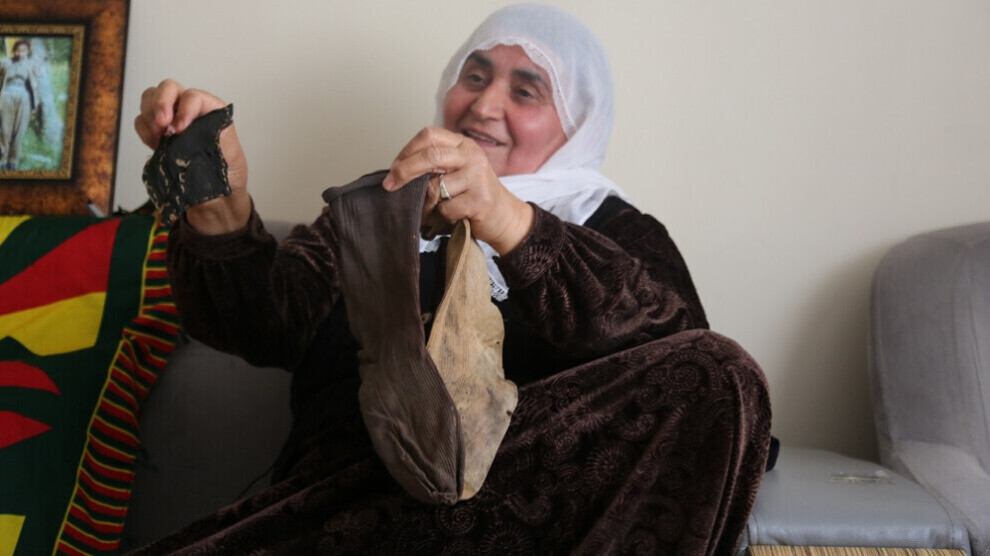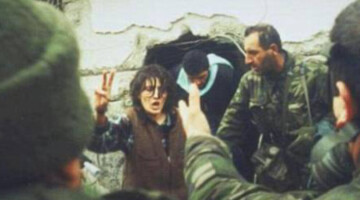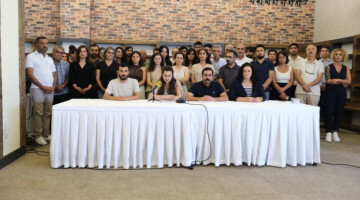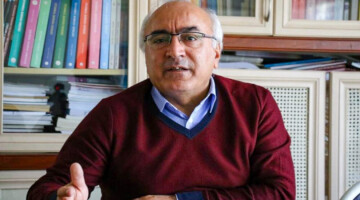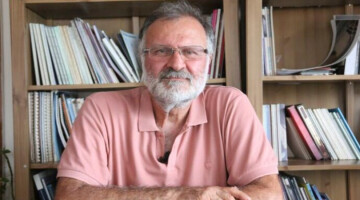In December 2017, the Turkish state ordered the destruction of the Garzan Cemetery of Martyrs in the Kurdish province of Bitlis. The resting place was located near the village of Oleka Jor, and hundreds of members of the Kurdish guerrilla organizations HPG and YJA-Star as well as the YPG and YPJ were buried there. Their bodies were exhumed after the destruction of the cemetery on the orders of the Istanbul chief public prosecutor's office and taken to the forensic medicine there. They were then buried in the Kilyos Jewish cemetery not far from the seaside resort of the same name at the European entrance to the Bosporus, in a section for "the nameless" In total, the remains of 282 people had been taken from the cemetery in Garzan. It has only been known since the end of 2019 where the bones were taken. Only 22 bodies were subsequently returned to their relatives.
Among the dead buried in plastic boxes in Kilyos was Nadire Elma (Nom de guerre: Nalîn Mêrdîn). After 21 years, her remains have been handed over to her family. "My daughter's bones were in a plastic box. When the box was placed in my arms, I saw stockings among the bones. The socks had been buried with the bones for 21 years," said Mecbure Elma, the mother of the fallen guerrilla.
Nadire Elma was from Mardin and was only 14 years old when she rebelled against state terror and joined the PKK in 1992. In 1999 she and three other fighters were killed in a battle against the Turkish army in Siirt. The family did not learn of her death until 2007, and the body was withheld from her parents. Now her remains are buried next to her father's grave.
Her mother Mecbure Elma told ANF about her daughter, her socks and her search for the remains of her daughter. For this, she takes out two carefully guarded framed photos, along with a yellow-red-green cloth and the aforementioned socks. She learned only in 2007 that her daughter had fallen. For a long time, however, it was unknown where the body was. Only in 2015 came the news that she was buried in Garzan.
"My daughter was an unproblematic and talented girl. She fell after eight years in the mountains. We searched for her body for years in vain. Then we were told she was in Oleka Jor. We went there. The gravestone read Nalîn Mêrdîn," Makbule Elma recounts.
"She was supposed to stay by her friends' side"
The family learned from the media reports that the cemetery was subsequently destroyed with bulldozers and tanks and that the exhumed bodies were taken to Istanbul. "Beforehand, we had been told that we could take the body. However, I wanted her to stay in Garzan alongside her friends. Much later, we were told that she was in Istanbul. We went there, but there was no grave there. My daughter's bones were given to us in a plastic box. That was very hard. The martyrs’ cemetery in Garzan is in the middle of the mountains, but we would be able to go there and see her grave at least."
Makbule Elma picks up the socks, saying, "These were buried with the bones for 21 years. The body has not been washed before. So much happened, people had to flee from oppression, fell, died in prisons, mothers died, burned to death.... At least we wanted to see the grave of our child. We are not free in our own country. My son lives in Germany, when his father died he could not come to the funeral. Even when I die, he will not be able to come either."
Except for the socks, there were no clothes in the box with the bones. Makbule Elma says, "They took off her guerrilla clothes, which must have bothered them. There were only these socks. She had two pairs of socks on top of each other. Probably her shoes were pressing, because there was also this piece of cloth. I brought my daughter's body to Mardin and took this pair of socks out of the box. We buried the other pair together with her again. These socks are a memento of my daughter. We have received her bones now, but the other families must also finally receive the bodies."
Complaint to the Constitutional Court
At the end of April, the Istanbul-based Association of Lawyers for Freedom (ÖHD) filed a complaint with the Turkish Constitutional Court in Ankara on behalf of the families. The background is the refusal to prosecute the relocation of hundreds of guerrilla bodies. The ÖHD considers the actions of the Turkish authorities to be a denigration of the memory of the deceased and to constitute torture. The responsible public prosecutor's office refuses however to open investigations against the responsible officials and to order the return of the corpses. "Since the Istanbul Chief Public Prosecutor's Office systematically refuses to allow us to go to the courts of instance, we, as the legal representatives of the bereaved families, have no other way but to go to the Constitutional Court to fight for justice," said the ÖHD.
RELATED NEWS:

